
The Surprising Rise of Eco Friendly Printed Bags in Sustainable Fashion Trends
The fashion industry is experiencing a remarkable transformation as sustainability becomes a key priority for consumers and brands alike. A recent report by Grand View Research indicates that the global eco-friendly bag market is projected to reach $15.3 billion by 2027, with printed bags increasingly leading this charge. These environmentally conscious alternatives not only cater to the growing demand for sustainable products but also offer brands an opportunity to enhance their visibility and engagement through customized designs. As fashion-conscious consumers seek ways to express their values through their purchases, printed bags are emerging as a stylish yet responsible option. The shift towards eco-friendly printed bags illustrates a significant trend in sustainable fashion, reflecting a broader cultural change towards environmental awareness and responsibility in consumer behavior. As the line between fashion and sustainability blurs, printed bags are positioned to become an integral part of this evolving narrative.

Understanding the Importance of Eco-Friendly Printed Bags in Fashion
The role of eco-friendly printed bags in sustainable fashion cannot be overstated as consumers increasingly prioritize sustainability in their purchasing decisions. Recent research indicates that a significant portion of shoppers, specifically over half of Australians, regard sustainability as a critical factor when making retail purchases. This shift in consumer behavior highlights the growing awareness and demand for products that do not harm the environment.
 Eco-friendly printed bags serve as an accessible way for brands to meet this demand while promoting their commitment to sustainable practices.
Eco-friendly printed bags serve as an accessible way for brands to meet this demand while promoting their commitment to sustainable practices.
These bags not only reduce reliance on single-use plastics but also embody the aesthetics and values of eco-conscious consumers. They can be an extension of a brand’s identity, reflecting the emotions and personal tastes of customers who are eager to support sustainable fashion. As designers increasingly incorporate eco-friendly materials and designs, printed bags become a canvas for creativity that aligns with the ethos of the sustainable fashion movement, making them essential accessories in the fight against climate change.
Exploring the Environmental Benefits of Sustainable Materials
Eco-friendly printed bags are gaining traction in sustainable fashion, becoming a staple for environmentally conscious consumers. Research from Smithers, a leading market report firm, indicates that the global sustainable packaging market is projected to reach $400 billion by 2027, with consumers increasingly prioritizing environmentally friendly materials. Printed bags crafted from organic cotton, recycled plastics, and biodegradable materials not only minimize waste but also offer a stylish alternative to traditional disposable options.
The environmental benefits of these sustainable materials are significant. According to a 2022 report from the Environmental Protection Agency (EPA), using recycled materials can reduce greenhouse gas emissions by up to 30%. Moreover, utilizing organic materials requires less water and eliminates harmful pesticides, promoting healthier ecosystems. The adoption of eco-friendly printed bags not only supports sustainable fashion trends but also encourages a shift towards responsible consumerism, ultimately contributing to a decrease in the overall carbon footprint associated with apparel and accessory production.
The Surprising Rise of Eco Friendly Printed Bags in Sustainable Fashion Trends
This chart illustrates the increasing popularity of eco-friendly printed bags made from sustainable materials over the last five years. The data showcases the percentage of consumers who prefer these bags compared to traditional plastic bags.
How to Choose the Right Eco-Friendly Printed Bag for Your Brand
With the increasing emphasis on sustainability, eco-friendly printed bags are becoming an essential component of the fashion industry. Selecting the right bag for your brand involves key considerations that can enhance your market presence while promoting environmental responsibility.
When choosing an eco-friendly printed bag, prioritize sustainable materials such as organic cotton or recycled paper. These options not only reduce environmental impact but also resonate with eco-conscious consumers. Additionally, consider the bag's design and functionality—ensure it reflects your brand's ethos and meets customer needs.
Tip: To stand out, customize your bags with unique prints that tell your brand story, making them not just a packaging solution but a conversation starter.
Furthermore, always keep up with market trends. For example, cotton tote bags are gaining popularity for their durability and style, making them a staple in sustainable fashion.
Tip: Conduct regular market research to identify emerging styles and materials that align with your brand's sustainability goals while appealing to your target audience.
The Surprising Rise of Eco Friendly Printed Bags in Sustainable Fashion Trends
| Feature | Detail | Impact on Sustainability |
|---|---|---|
| Material | Recycled Cotton | Reduces waste and supports recycling. |
| Printing Method | Water-Based Inks | Less harmful to the environment compared to solvent inks. |
| Durability | High-Quality Stitching | Creates longer-lasting products, reducing need for replacements. |
| Size Options | Various Sizes Available | Versatile for multiple uses, promoting reusability. |
| Customization | Available for Branding | Enhances brand visibility while promoting sustainability. |
| Production Process | Ethically Sourced and Made | Supports fair labor practices and reduces carbon footprint. |
Design Trends: Making Eco-Friendly Bags Stylish and Functional
The shift towards eco-friendly printed bags in sustainable fashion signifies a transformative change in how consumers view style and functionality. Designers are creatively blending environmentally conscious materials with innovative designs, ensuring that these bags are not only sustainable but also visually appealing. From organic cotton to recycled fibers, the choice of materials reflects a commitment to reducing waste while meeting aesthetic demands. Bold prints and vibrant colors have emerged, challenging the stereotype that eco-friendly products must be plain or boring.
Functionality remains at the forefront of design trends, as modern consumers seek versatility in their accessories. Multi-purpose bags that can transition from daytime errands to evening outings are gaining popularity. Features such as adjustable straps, inner pockets, and foldable designs cater to the busy lifestyles of eco-conscious individuals. This practicality, combined with stylish aesthetics, is making eco-friendly printed bags a staple in wardrobes, appealing to a demographic that values both sustainability and fashion. As these trends continue to evolve, eco-friendly bags are redefining the narrative around sustainable fashion, making it clear that style and responsibility can go hand in hand.
Marketing Strategies to Promote Eco-Friendly Printed Bags Effectively
The marketing strategies for promoting eco-friendly printed bags in the sustainable fashion realm can significantly impact consumer behavior. First, storytelling plays a crucial role in connecting with eco-conscious consumers. Brands that share their journey—how their bags are made, the sustainable materials used, and the positive environmental impact—can create a compelling narrative that resonates with shoppers. Engaging social media campaigns featuring real stories from both the creators and users can enhance this connection and encourage word-of-mouth promotion.

Related Posts
-
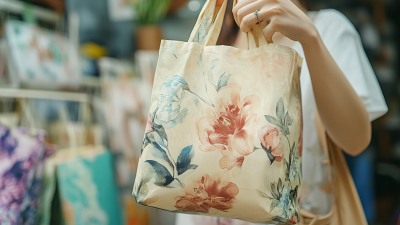
Printed Bag Innovations Shine at the Record Breaking Canton Fair 2025
-
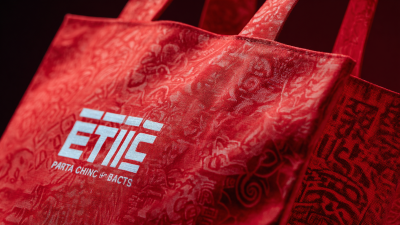
Partner with China for the Best Printed Bags Designed to Enhance Your Global Supply Chain
-
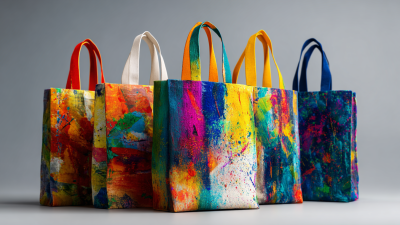
Ultimate Guide to Choosing the Best Printed Bag for Your Business Needs
-
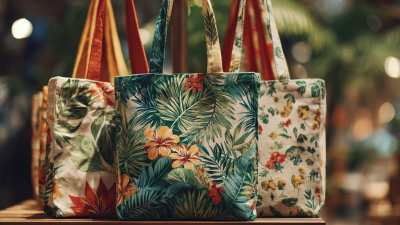
5 Essential Tips for Choosing Sustainable Printed Bags: Boost Your Brand's Eco-Friendly Image
-

Understanding the Growing Demand for Printed Bag Solutions in Sustainable Packaging
-
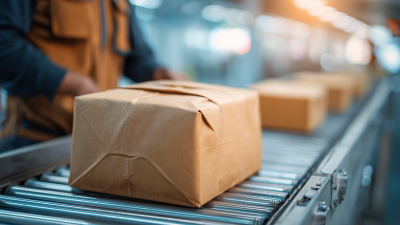
7 Top Reasons Why Best Shipping Bag Solutions Enhance Your Supply Chain



